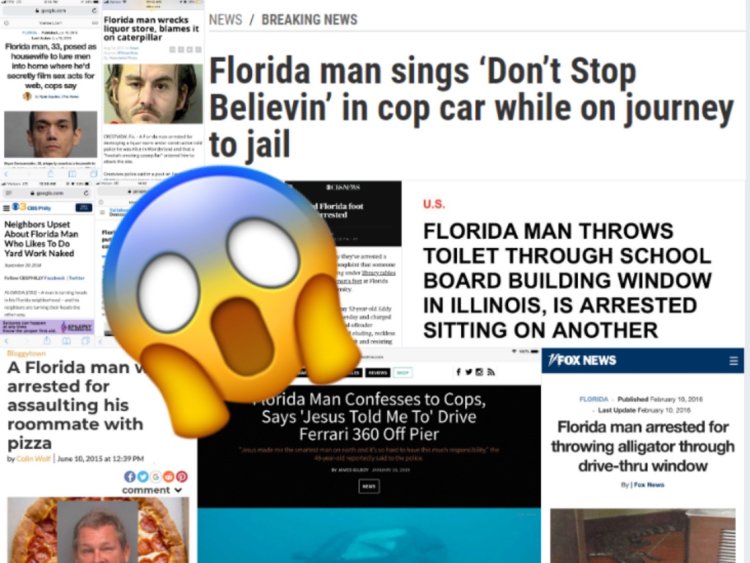There seems to be a new challenge circulating throughout social media every week. The most recent twitter craze is the Florida Man challenge. The trend has sparked debate about its role in exploiting mental illness as an effort to gain more retweets and likes.
The Florida Man Challenge encourages individuals to look up ‘Florida Man’ followed by the day they were born, which provides them with a stereotypical Florida Man headline they then post on social media.
The search results? Cynical headlines like “Florida man accused of shooting and killing small puppy” or what others find to be comedic headlines like, “Florida man arrested after hitting dad with pizza because he was mad he helped birth him”.
Ben Conarck, an investigative reporter for Florida Times-Union, went to twitter to post about the dark side of the Florida Man stories saying that “‘Florida Man’ stories often exploit poor and/or mentally ill people for clicks.”
“The criminal justice system and mental health are intertwined and inseparable. So many of the people arrested on any given day in Florida are dealing with mental illness or extreme poverty,” Conarck explained. “So I think when you look at it through that lens, it’s pretty obvious that a lot of what seems zany or weird on the surface is actually pretty sad when you come to grips with the circumstances of what these people are really dealing with.”
But is this just an innocent challenge meant to promote laughter and social media fame or is there more to say about the role the challenge plays in making fun of those who suffer from mental health issues and don’t get a say in their own stories like Conarck suggested?
“The Orlando Sentinel, in a stunningly deep and thoughtful investigation, found that an estimated 70 percent of the people who need mental health treatment in this state do not have access to help,” said a Poynter article that suggested the ‘Florida Man’ seems to be funny outside of the mental health crisis in Florida.
According to MentalHealthAmerica, Florida is ranked eighth as one of the highest ranked states with adults with any mental illness and ninth where a reported mental illness is an unmet need.
“Florida out of all the 50 states spends the least amount of money on mental health,” said Director of the University of North Florida Counseling Center Andrew King. “So, the downside is that other states’ access is greater because the state puts more money into it. The problem with mental illness is that it colors how you perceive things.”
King says someone is more likely to pay for help if they have a broken arm but most people don’t realize they have a mental illness which leads them to believe they don’t shouldn’t have to pay to receive help.
“I think people should look at these things with a critical eye,” said King.
Others seem to think differently.
“It’s light-hearted for sure! I mean, I’ve been labeled ‘Florida Man’ and I have no mental illnesses that I’m aware of. I think anybody can take anything the wrong way,” said Lane Pittman who was labeled a Florida Man after he went viral for head-banging to heavy metal music during Hurricane Matthew and Hurricane Florence.
“I’ve actually had people take me headbanging in hurricanes the wrong way. Like, I’m making fun of the victims or something, which is a hundred percent not true. If anything, victims of those hurricanes have personally told me how it actually made them laugh during the midst of their troubles,” said Pittman.
The ‘Florida Man’ trend starts first with police reports. Florida Sunshine laws allow journalists easier access to police reports that can contain ‘unusual and bizarre’ arrests. With easier access, ‘Florida Man’-like stories are accessible hence the abundance of ‘Florida Man’ headlines.
“I think it’s a much bigger issue than headlines. The blame is shared between media outlets and law enforcement agencies alike,” said Conarck. “So I think journalists need to do a better job of asking themselves if they’re doing more harm than good.”

